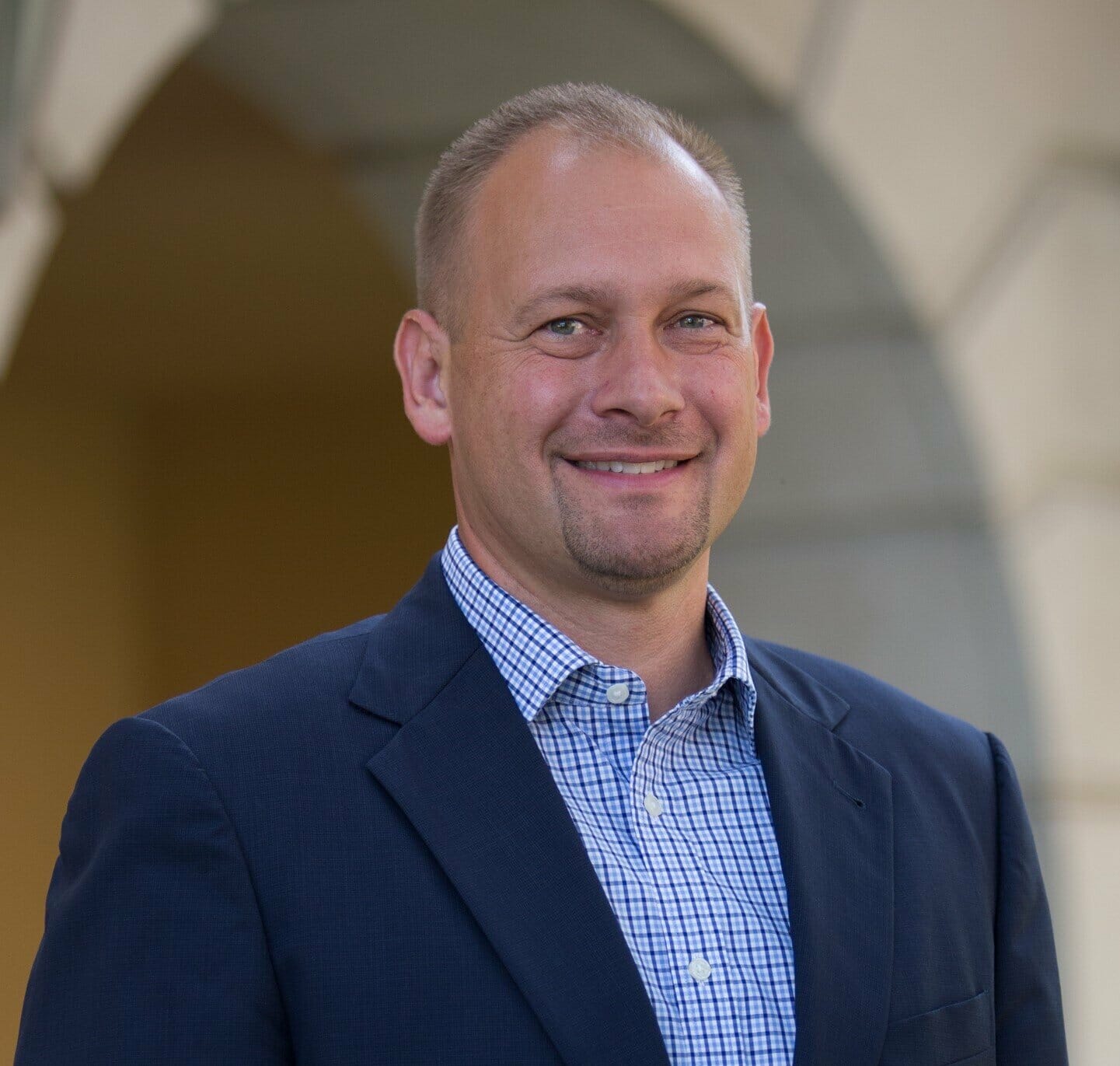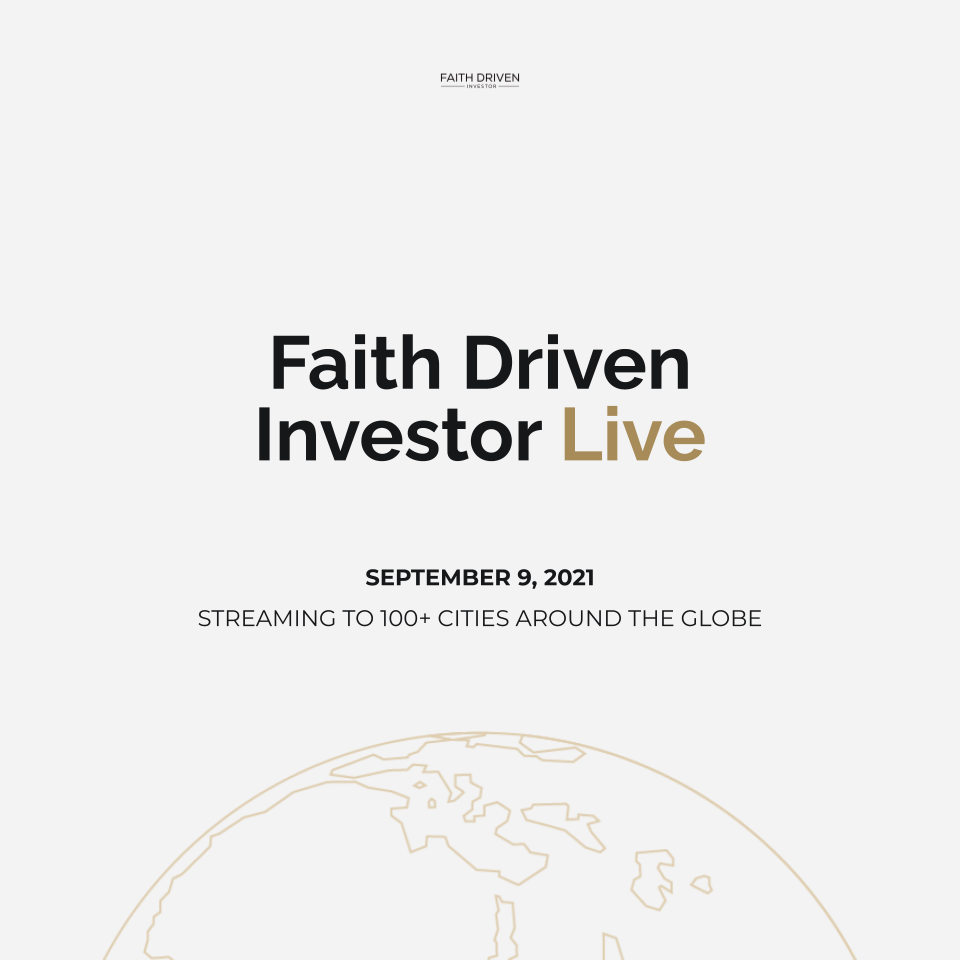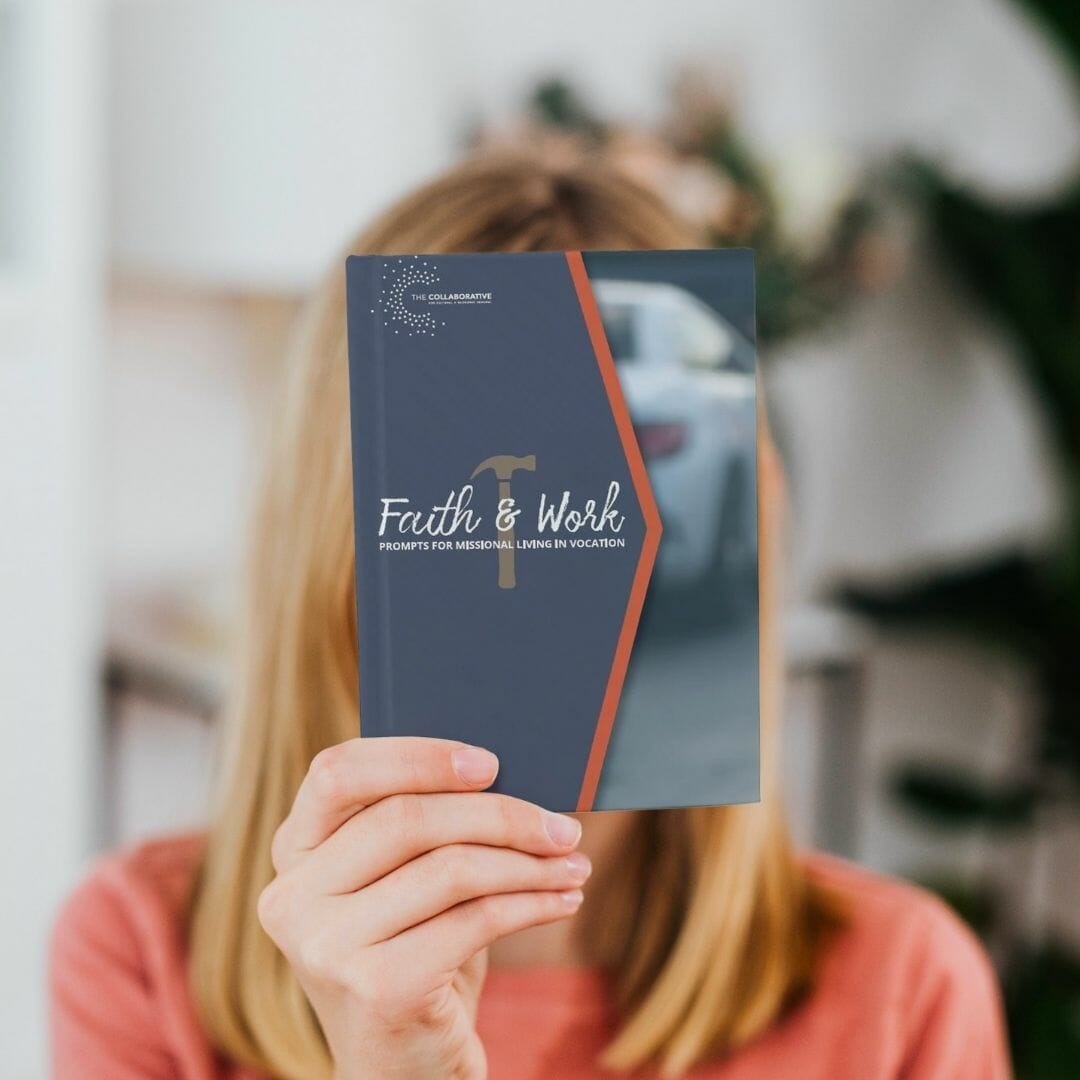Jeff Shafer, Founder and CEO of CommonGood Capital
When was the last time you thought about how your investments were impacting others? Or for that matter, when was the last time you thought about your investing as being an amazing gift? If your internal answers are not what you would like them to be, you are not alone. Our humanity and culture sometimes blind us from the truths sitting right in front of us. How does this impact our decisions if we lived with these truths in mind?
One hard indisputable is, you can’t take your money with you when you die. A second truth is, “Where your treasure is, there your heart will be also.” (Matthew 6:21) While this may not be fun to assess, it’s important to step back in a non-judgmental way consider: how you spend your capital, how you save your capital, how you give your capital, and how you invest your capital. (Historically, people were considered wise if their capital was just invested. Today, there are more options which means wise investors are taking the extra step to ask “how” you invest your capital.) This exercise is valuable for everyone, but I believe it is especially critical for those who believe we are called to be stewards of the resources we have been given.
And yes, I would submit that stewardship reaches into the depths of how and why we invest. It is my own long journey that has led me to this understanding and conviction. The implications for my life have been profound both personally and professionally. In my pursuit of influencing the financial services industry and through a wild turn of events, I felt called to take a huge leap of faith and start my own company, CommonGood Capital. This was the best platform to advocate for people’s values and passions to be incorporated into their investment decisions.
In January 2014, my world came to a complete stop. One minute I was president of a leading alternative investment asset management company who seemingly had what the world defined as success: a wonderful family, a great job, and a beautiful house in the heart of town with a white picket fence. Outwardly, there were no major moral failings. Things changed quickly after I woke up from unexpected back surgery. Immediately, I saw the world differently. In fact, I could feel my body downshift 2 or 3 gears. It was as if I could feel the adrenaline leaving my body that had built up in me the last 20 years as I climbed the corporate ladder. While this may sound like it would be a euphoric feeling, it was the complete opposite. I felt overwhelmingly uncomfortable and very confused. I was made to push and drive hard, so I fought these feelings and forced my way back to work 3 days after my surgery. What’s funny now is to think about how my wife and I would take walks right after the surgery and I would shuffle along at a painfully slow pace. For me, I thought I was doing great, albeit slower than normal. Why that is so funny, and yet so sad, is that for years when my wife and I would take walks together, I would constantly ask her if this is doing anything for us. Everything I did was to compete, to get something done. And now the tables had been flipped, though I did not even know it at the time. But here is what I did quickly know: I could not do a calve raise with my left leg. My foot felt like it was asleep or that I was always wearing about 5 pairs of socks because of the nerve damage in my lower back. Bending over and lifting anything over a few pounds was out of the question. My wife and kids had to be my hands and feet for basic things like getting water out of the refrigerator or trimming some bushes in preparation for a new basketball hoop. But doctor’s orders were to keep walking and then get on a regular physical therapy plan. Over the next 3 months, I began to regain quite a bit of strength as the nerves in my back repaired themselves. Turns out, that was all the easy stuff.
Unbeknownst to me at the time, there was a much bigger process that God was forcing upon me. He was stripping me down to total dependence on him as He started to loosen my grip on several things. I remember crying to my wife shortly after surgery, feeling like my whole manhood was being taken away from me. Physical things I could normally do with ease, I could no longer do. My sleep was massively off – every night became a struggle. The desire and passion for my job was completely gone. It would take hours every morning on my knees with Jesus just to find the strength to go into work. The pinnacle came when I was taken to the emergency room a couple of weeks after surgery in a state of absolute terror. I was coming in and out of reality caused by exhaustion, stress, and massive doses of steroids (steroid psychosis). Even my mental capacity was taken from me for a short window of time. And during that window, the overarching feeling, which was as real to me as me writing these words, was the absence of God. Talk about sheer terror! My wife’s perspective of that experience was both medical and spiritual. When she looked in my eyes, she could see it was not me. She says it was as if evil was trying to take me down and wait for me to cry, “Uncle!”
As I laid in a hospital bed for two days, there were two overwhelming truths that penetrated my heart and soul. First, I knew I was not God. I was not in control. And second, while I was totally locked in behind multiple doors in the hospital, I knew I was totally free. I realized I was being stripped of my sin of performance and control. Now, seven years later, I fortunately have seen the grace in the unwinding of 40 years of unhealthy habits and sin, but like most bad habits and addictions, the struggle is never completely over.
About a month after getting out of the emergency room, I was sitting on our couch recovering, thinking about how to use our capital in case I couldn’t go back to work at the same level. Awhile back, I had been given a short DVD clip of an investment opportunity in affordable housing, but never had the time to watch it. At that moment, I had all the time in the world. I won’t relive the video with you, but rather the moment that changed me. It was not the potential return, although that’s important, but rather hearing the testimonials from two residents who lived there before and after this group infused it with capital and new management who cared about the residents. Two phrases are still in my head after 7 years. The first was, “They have given me my dignity back!” The second was, “I am so excited to have friends come over to my home now”. That’s when I realized at a deeper level the power of capital and stewardship. Our capital, when used correctly, has the power to influence, serve, and love others. And this was the catalyst of our journey into asking, “What does it mean for me and my family to be thoughtful stewards of our time, talents, and treasures?”
This is a process that has impacted our family in many ways and continues to, especially as my wife and I become empty-nesters and are thinking through what the next chapter of our lives could look like. One major area was around my calling for work. Eventually in 2017, God gave me, a performance and control junkie, the courage and call to start a business in impact investing. CommonGood Capital was birthed out of our living room with the goal of helping wealth managers and their clients ask and implement strategies around that same question: What does it mean to be a good steward of your investment capital? As I write this, it comes across like the process was decisive and smooth, but the reality is a different story. It has taken one baby step in front of the other and there have been days when we were not even moving forward with baby steps. Every step big or small has been in faith as we risked significant capital, time, and my professional reputation. What is easy to forget is back in 2017 most had never heard of impact investing and most in the financial services would look at this as all heart and no head. A lot has changed in the last 5 years, and I think 2020 will be a tipping point for impact investing. COVID, the political and social unrest, isolation, and people’s desire to be a part of the solution has visibly picked up momentum in the impact investing space. As for CommonGood, the story is still being written.
For those who are not familiar with impact investing, this term was coined in 2007 by the Rockefeller Foundation. Impact investments are defined as investments made into companies, organizations, and funds with the intention to generate social or environmental impact alongside a financial return. That probably makes sense, but as you start to think about it, there will inevitably be some questions. Doesn’t every company make money and generate social and environmental impact? Or how do you define social or environmental impact? Or who decides what is good and acceptable? Can you make money and do good? How do you integrate faith into that equation? These are all great questions and ones that I started to ask nearly 8 years ago (and still wrestle with today). Let me give you a framework that will be helpful as you think through these types of questions.
Define the return expectation or potential.
Assess the intentionality of impact.
Understand the financial and non-financial goals and measurements.
Wrestle through the sustainability of the investment.
As you think about stewardship for yourself, it first starts with a deep understanding – we are not in control and that God is the author of our time, talent, and treasure. Slow down and reread that last sentence. I don’t mean a cursory understanding, but rather a real and radical sense that every breath we take is because of Him. When you get to that point, you then can start to work through the questions. Central to this question of stewardship is a fusion of our heart and head around the recognition of our need and the deep value of others. Taking these two ideas together, it’s more than just about yourself, but rather using your time, talent, and treasure for the common good.
Does this sound familiar? “Love the Lord your God with all your heart, soul and mind, and love your neighbor as yourself.” (Luke 10:27) But why don’t we do this? Probably many reasons, but fear of risk and loss of control often keep us from moving forward and taking the next right step. When you start from the position that everything you have is a gift from God and that we are called to use them accordingly, then it’s critical to redefine risk.
In the parable of the talents the first two men in the parable took action and risked their master’s capital. In doing so, they were able to return more to him, each according to what they had been given and what they had done with the money. The third man buried the talents because he was afraid of losing the master’s money. While he was able to give the master back his original capital, the master was very displeased. He was displeased because the man misunderstood his role and the master’s expectations. The Master wants us to be stewards of our time, talent, and treasure and to leave the outcomes to Him.
This is a daily surrender for me in prayer and action – how can I be a good steward of the time, talent, and treasures God has given me? To a performance and control junkie like myself, this was not (and is still not) easy. But what I can say from experience is that the process, while scary, has been both exhilarating and freeing when leaning into, and fully grasping, these truths. Investing will never look the same as you start to think about how your investments not only benefit you, but also others. In fact, I would be so bold as to say that investing, which is so easily driven by fear and greed, can actually produce joy and freedom as you release the grip on your capital and start to see its impact on others. Investing is not all about me or you. And that is freeing.
Check at A New Lens with CommonGood Capital to hear people’s stories, when they realized the power of the capital, and what stewardship means to them.
Faith Driven Investor: Come hear from others like Tim Keller, Cathie Wood, and David Platt to mention just a few at the upcoming streaming watch party for this year’s Faith Driven Entrepreneur Live and/or Faith Driven Investor Live conference on September 8th and 9th. We will be watching live at the First Presbyterian Church of Orlando.




